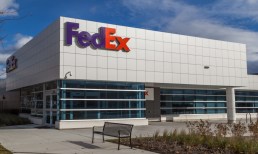Today in food commerce, Instacart confidentially files with the Securities and Exchange Commission (SEC) for an initial public offering (IPO), while Gopuff announces its first restaurant brand. Plus, grocery prices continue to skyrocket.
Instacart Preps for IPO as Consumers’ Shift to Pickup Threatens Aggregators’ Future
Now might not be the best time for Instacart to be entering the public market. After years of leadup, the grocery aggregator has announced a confidential filing with the SEC for an IPO. Reports of Instacart’s IPO prep date back to late 2020. Now, the aggregator faces a very different landscape than it would have, had it gone public amid the initial delivery boom seen during lockdown.
Gopuff Takes on Restaurant Aggregators With Launch of Pizza Brand
Gopuff is escalating its efforts to compete with restaurant aggregators with the debut of The Mean Tomato, a private-label virtual restaurant brand focused on pizza and the first restaurant brand announced since the launch of the Gopuff Kitchen initiative in the summer of 2021.
Despite Slight Easing in April, High Consumer Prices Keep 2022 Outlook on Pins and Needles
Advertisement: Scroll to Continue
Those looking for a ray of economic sunshine amid inflationary clouds might not find it in April’s Consumer Price Index (CPI), which is lower than March but still historically high. Takeaways from the new numbers can be seen as both pessimistic and optimistic, as a moderate easing in April still finds inflation casting a shadow of uncertainty on the recovery. “Five of the six major grocery store food group indexes increased over the month,” BLS said.
Consumers Are Shopping Less, Spending More
Consumers are shopping less but spending more when they do. Inflation may have influenced this rise in expenditures in March, according to “Digital Economy Payments,” a PYMNTS report based on a survey of 3,017 United States consumers. Among the categories included in the survey, consumers are buying fewer groceries, food items from restaurants and retail products.
Cloud Kitchen Softwares Help MENA Restaurants Optimize Costs, Expand Reach
Operating — and growing — a restaurant business in the Middle East and North Africa (MENA) region comes at a steep cost, resulting in shrinking margins for restaurant owners and operators who sometimes see no business logic in expanding to new locations. According to Ahmed Osman, co-founder and CEO of Egypt-based cloud kitchen operator The Food Lab (TFL), it can take anywhere between $100,000 to $200,000 to rent a restaurant space, fix it and acquire the equipment to launch a food business in the North African country.




